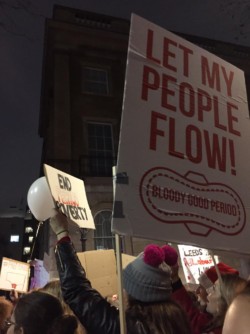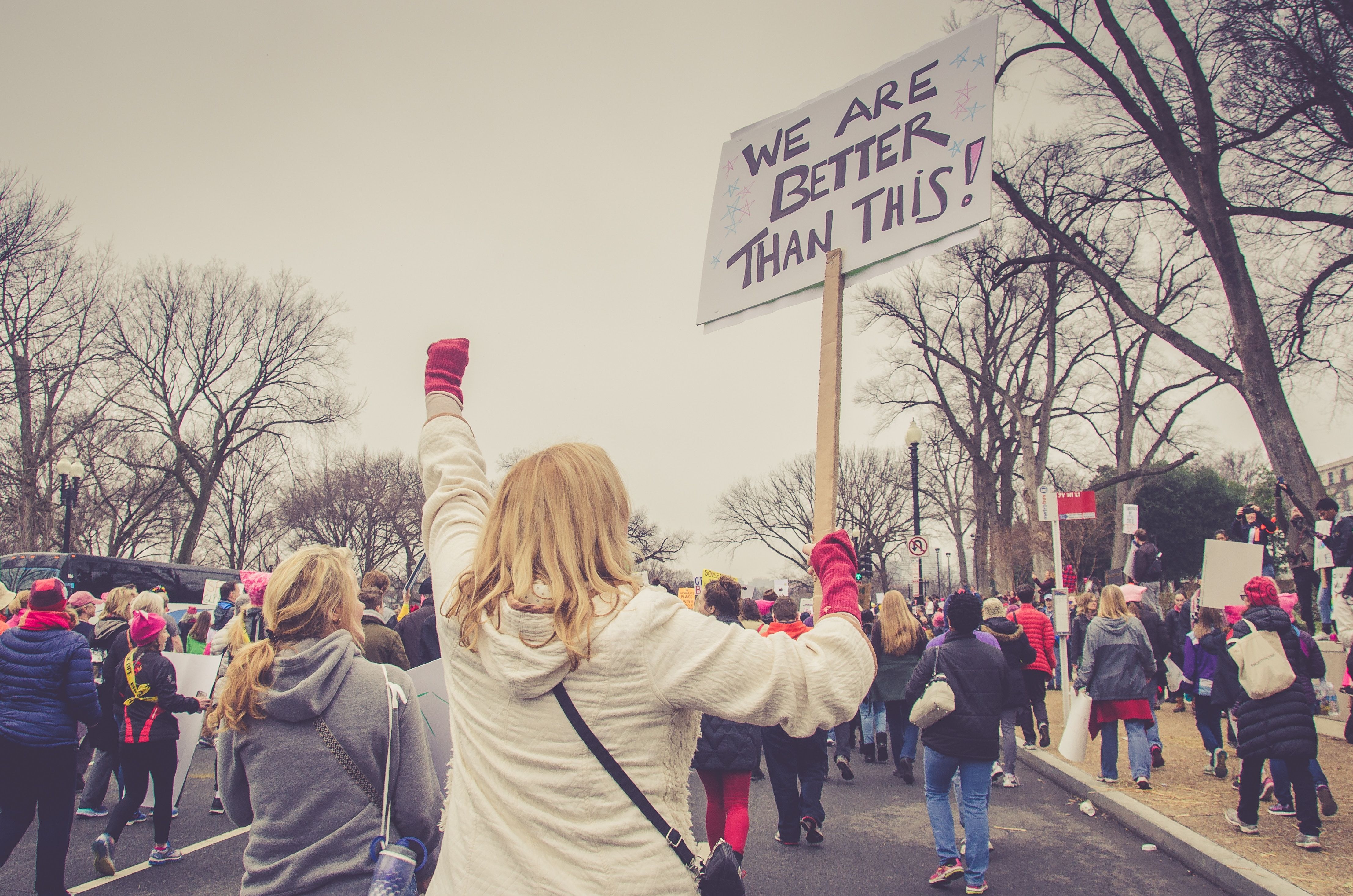How joining the Free Periods Protest renewed my faith in activism
On Wednesday December 20, hundreds of young women (and men) gathered in Westminster to protest something called period poverty. Many readers may not know what that is, so this protest was a milestone in recognising the issues that feminism still needs to tackle at home.It’s very easy to take for granted the progress that has been made in the UK, and the position that women hold, in spite of the struggles of every day sexism that women face. For many of us, the ability to buy sanitary products, or choosing between food and a box of tampons is not something we have to consider. But this is not the case for many women and young girls in the UK.
Currently, 1 in 10 girls in the UK can’t afford menstrual products, 49% of girls have missed a full day of school because of their period, and women will spend over £18,000 in their lifetime on menstrual products (approximately £13 a month). I attended this protest because these statistics astounded and outraged me.
People took to the streets to demand that the 208 thousand girls who are eligible for school meals be provided with sanitary products by the government. What disturbs me the most about the above statistics is that girls are being deprived access from the education they are entitled to because of a bodily function as normal as another other, and that this is still a problem because politicians are made uncomfortable by words like “vagina” and “blood”. Girls are turning up to school with socks, old shirts, and newspaper in their underwear in lieu of sanitary products, which are incredibly dangerous to their health. If the NHS can provide condoms and contraception, they should provide sanitary products. Put simply, young girls should not be penalised for a natural process out of their control, and it should not be an obstacle to education.
Our generation is constantly criticised for our obsession with social media, but this protest showed the power of social media
What inspired me the most about this protest is who attended. The crowd was made up of people of all ages, but there were many young women in their teens and early twenties. Many of them are not themselves suffering from period poverty, and I’m inspired to see women turning up to demand rights for those without. Paraphrasing an interview from Scarlett Curtis, we proved that Generation Z, and this wave of feminists, are not just good at sharing petitions on Facebook, or tweeting about #metoo. Our generation is constantly criticised for our obsession with social media, but this protest showed the power of social media to get bodies on the streets (I myself found out about the protest via Instagram because I follow the organizers). The young feminists who turned up proved that Generation Z is engaged, and present, and demanding equality.

Image: Zoë Morrall
I was reminded that no one person can change the world, but that it takes collaboration. I was also reminded that when we see injustice, it only takes one person standing up and saying something to make a movement. I am often disheartened by the scope and extent of the problems I see, and I don’t always know how to begin in tackling them. It is very easy to participate online, but conversations online aren’t enough. Often posting and sharing can feel like shouting into the void, and the internet can feel incredibly lonely. Yet, I think an important lesson that we can take from this protest is that our hyper-connected lives could actually be our biggest asset in protecting our rights and fighting for the ones we still don’t have.
While it can be a fine balance between passive posting and active participation online, this protest has left me with renewed faith in our ability to make a tangible impact
The internet allows us to connect with communities and reach people in new ways. Taking advantage of social media to educate and connect with a new generation of feminists is fantastic. While it can be a fine balance between passive posting and active participation online, this protest has left me with renewed faith in our ability to make a tangible impact, both as individuals and a community. This includes utilising the internet, and it is up to us to figure out how to best exploit the ways we are connected to make real change to better our communities. Those interested in reading more about the #FreePeriods movement and getting involved can check out @freeperiods and @pinkprotest online.

Comments